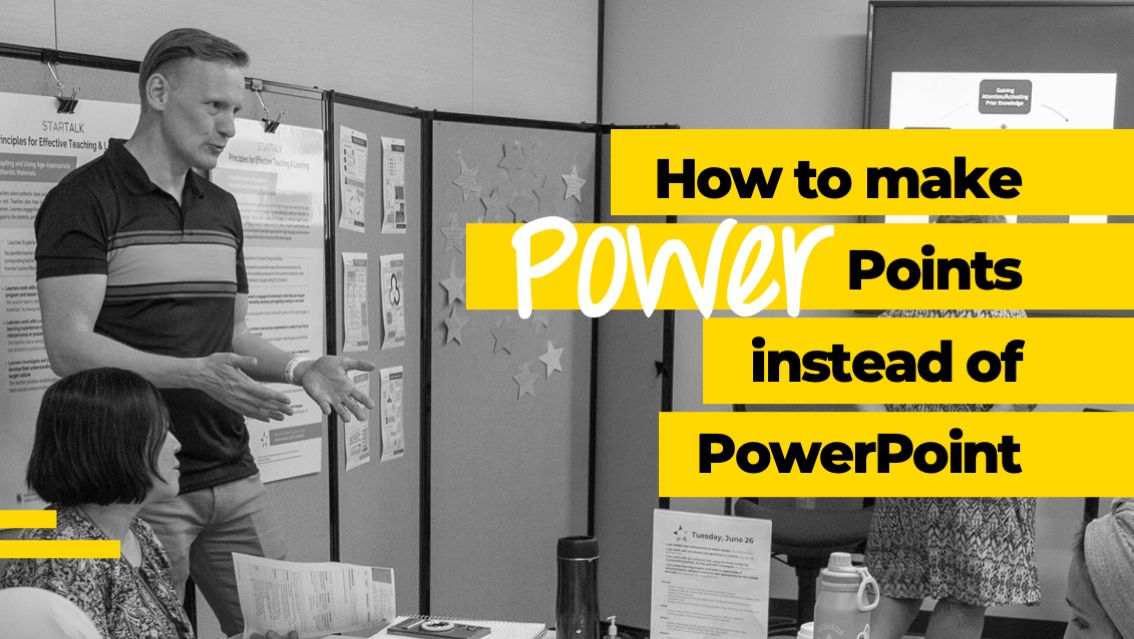How to make POWER Points instead of PowerPointThomas Sauer

1. Tell a Story
2. Model what you preach
Presenting is Teaching! Participants must be able to experience the solutions you are offering. So, don’t just talk about your solution. Don’t just show them your solution. Instead, allow participants to learn about your solution while they are experiencing it.
3. Connect with the audience
4. Provide time to process
You have so much to say during your presentation and the clock is ticking. All too often presenter will forget to pause and allow the audience to process all the of the new information that was just shared. There are simple ways to help participants: build in wait time at key moments, repeat your most important points to ensure that everyone heard them, and once again implement activities that model processing input. Bonus points for providing the audience with some kind of note taking or processing tool that helps them capture what you are saying in their own words so that they can immediately process the new learning.
5. Design slides at the end
6. Consider the audience's realities
7. Plan logistics of the presentation
Consider the set-up of your presentation room and be prepared for a variety of scenarios. Will you be able to change how people are sitting in the room? Will you be able to easily create small groups for discussions or experiencing activities you are sharing? Consider where you are able to and will stand for your presentation. Are you able to see and hear and be seen and heard by everyone in the room? Have you ever seen yourself present? You might want to bring a friend with you who can help direct you to make sure that you are talking to all sides of the room. It’s so easy to get frozen next to the screen, behind the podium, or one one side of the room.
8. Ask reflection questions
9. Forget about being perfect
10. Less is more
This is probably the hardest part for me, even as an experienced presenter. You don’t have to share EVERYTHING. It is much more important to share a few things in detail than many ideas without time to experience them, process them, and reflect on them. You can always come back next year and present again!

